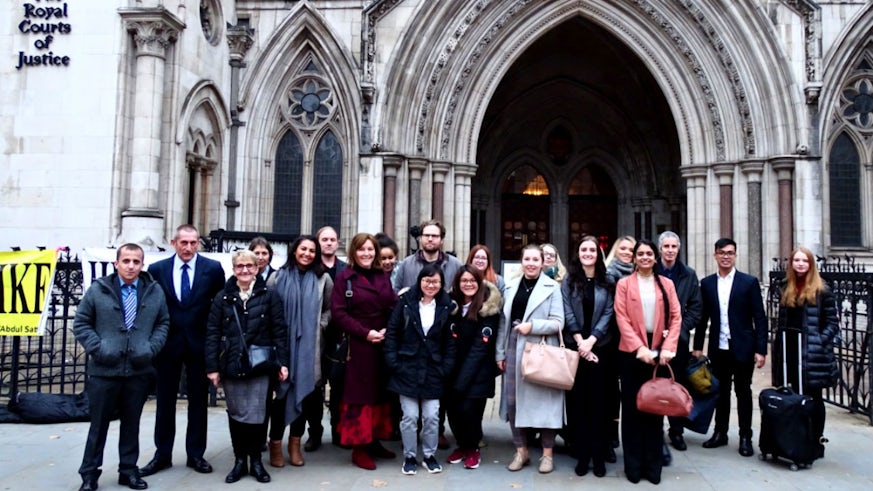Cardiff University Innocence Project overturns second case at Court of Appeal
21 December 2018

Cardiff University law students and academics have helped to quash the wrongful conviction of a man who served three-and-a-half years in prison.
The case, which was worked on over six years under the supervision of Dr Dennis Eady as part of the Cardiff University Innocence Project, was heard at the Royal Courts of Justice on 22 November, with the judgment being handed down today.
Gareth Jones was convicted of a serious sexual assault at the age of 22 in July 2008.
As well as dozens of students, the project has had the pro bono support of two Cardiff University alumni who are practising barristers (Philip Evans QC and Tim Naylor), a criminal appeals solicitor in Cardiff (Andrew Shanahan) and five medical/psychology experts.
Around 17 Cardiff law students, past and present, were present to see the result of their investigative work presented by barristers to a panel of appeal court judges, chaired by Lord Justice Simon.
Following the decision, Dr Dennis Eady, of the School of Law and Politics, said: “We first became aware of Gareth’s case in 2012 through his long-term supporter Paula Morgan. It has taken six years of tireless work by students, Paula, and our supporters to review this case. Based on their findings, the Court of Appeal has decided that this conviction is unsafe. We welcome their decision.”
This is the second conviction that the Cardiff Innocence Project has helped to overturn and they remain the only UK university innocence project to have done so.
In 2014, they were the first ever UK university innocence project to successfully bring a case to the Court of Appeal. Dwaine George had already served 12 years in prison for murder.
Cardiff University’s Innocence Project was launched in 2006.. The project allows students who are passionate about investigating alleged miscarriages of justice to work on cases of long-term prisoners who maintain their innocence of serious crimes for which they have been convicted.
Professor Julie Price, Head of Pro Bono at the School, said: “This case demonstrates that universities are about more than research. Our work is making a real impact from innovative teaching and learning. This decision will hopefully allow Gareth to start re-building his life.”
She continued: “We would not be in this position now without pro bono (free) assistance from a number of people. We are very grateful to those individuals, and to our students past and present for their efforts. The appeals system is problematic and needs to change.
“University projects are a sticking plaster only and cannot replace a properly-funded legal aid system.”
Share this story
In this short video, Julie Price talks to student caseworker Richard Simpson about the Cardiff Innocence Project.


